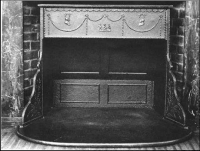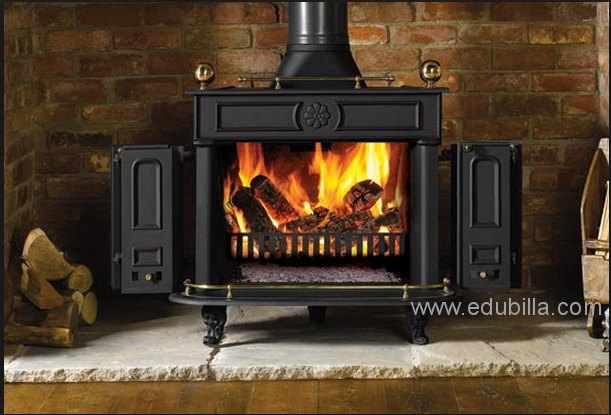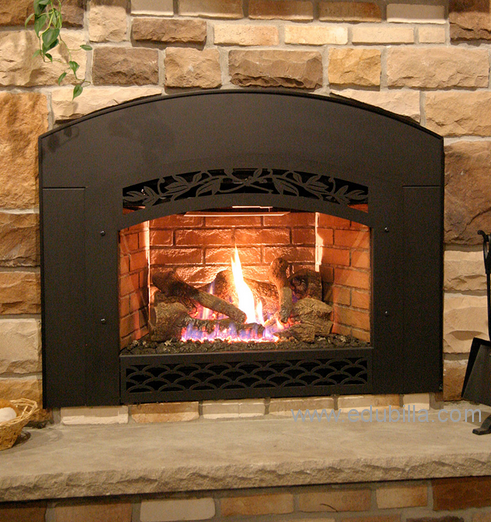








The Franklin stove is a metal-lined fireplace named after its inventor, Benjamin Franklin. It was invented in 1741.It had a hollow baffle near the rear (to transfer more heat from the fire to a room's air) and relied on an ""inverted siphon"" to draw the fire's hot fumes around the baffle.It was intended to produce more heat and less smoke than an ordinary open fireplace. It is also known as a ""circulating stove"" or the ""Pennsylvania fireplace"".
The two distinguishing features of Franklin's stove were a hollow baffle (i.e., a metal panel that directed the flow of the fire's fumes) and a flue that acted as an inverted siphon.
In colonial America, homes were warmed by a fireplace. The Franklin stove, invented in 1742, is a metal-lined fireplace that stands in the middle of a room. It has rear baffles for improved airflow. It provides more heat and less smoke than an open fireplace and uses less wood. This cast-iron furnace would radiate heat from the middle of the room in all directions, and the iron walls even absorbed heat, providing warmth to the room long after the fire went out.

